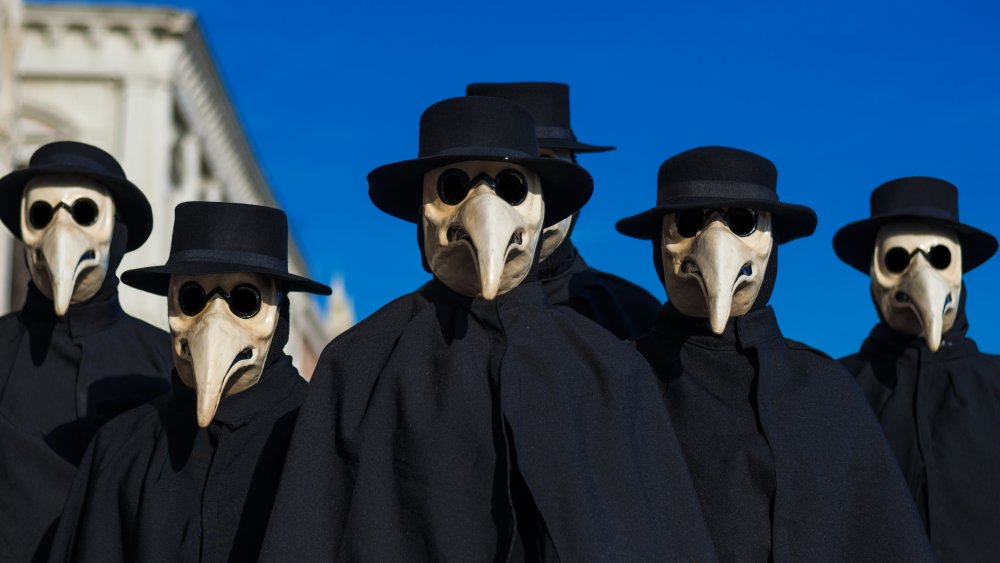
During any period of widespread concern about public health there soon emerges from the muddied waters of unsubstantiated rumour and half-truths, claims of conspiracy theories and miracle cures.
It’s a parallel world that has embraced 16th century cleaners in Geneva spreading the Black Death by smearing the fat of plague victims on door handles to infect rich home owners, and the COVID-19 effects of 5G mobile phone towers, to medieval monarchs who could cure scrofula by the touch of their hand and Donald Trump’s disinfectant injections.
Disinformation superhighway
If a real crisis isn’t bad enough to give people something to worry about, just throw into the mix the odd theory about dirty foreigners, insidious scientists, monarchic miracles and even a shot of bleach into the veins.
Welcome to the disinformation superhighway of the bizarre and the bonkers, the nasty and nefarious; quack doctors, pseudo-science, divine interventionists, oddballs, confidence tricksters and criminals.
In May this year a documentary featuring a former research scientist Dr Judy Mikovits purportedly claimed that Coronavirus could be blamed on pharmaceutical companies, Bill Gates and the World Health Organisation, and that wearing facemasks was dangerous as it “literally activates your own virus”.
Welcome to the disinformation superhighway of the bizarre and the bonkers, the nasty and nefarious; quack doctors, pseudo-science, divine interventionists, oddballs, confidence tricksters and criminals.
Sequah
There has even been a tenuous link to the world of brass bands.
The great James Ord Hume was once persuaded by an infamous snake-oil salesman and native Red Indian impersonator called Sequah (real name William Henry Hartley from Yorkshire) to write a march in celebration of his ‘Prairie Flower’ medicine that would cure ‘suffering females’ of rheumatism, liver complaints, indigestion and all blood diseases.
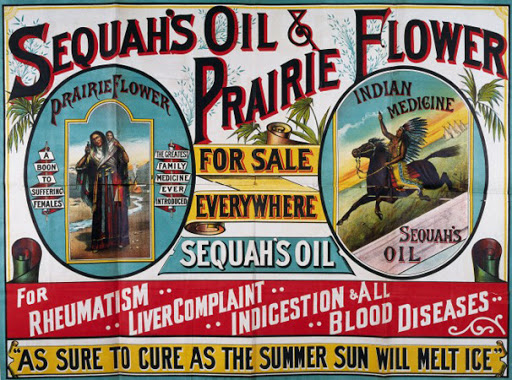
There are always claims of miracle cures...
Given that, all that the brass band movement needs now is for that well known ‘sceptic’ and former Hereford United goalkeeper David Icke to say that the current Coronavirus pandemic is all a plan for contesting world domination hatched by the lizard people of the Royal family.
Real frustration
Unfortunately, this does comes at a time when there is a real feeling of frustration at the UK government’s seemingly laissez-faire approach to the well being of the arts and culture sector.
With a need for an ailing economy to be kick-started back to health, the rather bizarre approach to the lifting of restrictions on pubs and cinemas but not concert hall and theatres has raised questions not only to whether the government truly values the arts, but also whether or not it has any understanding of the science behind the making of music in the first place.
Little wonder then that the current debate of whether or not playing a brass instrument is a vector health risk – either to the performer themselves or those who are sat with them in an ensemble or in an audience listening to them play, has become somewhat fevered.
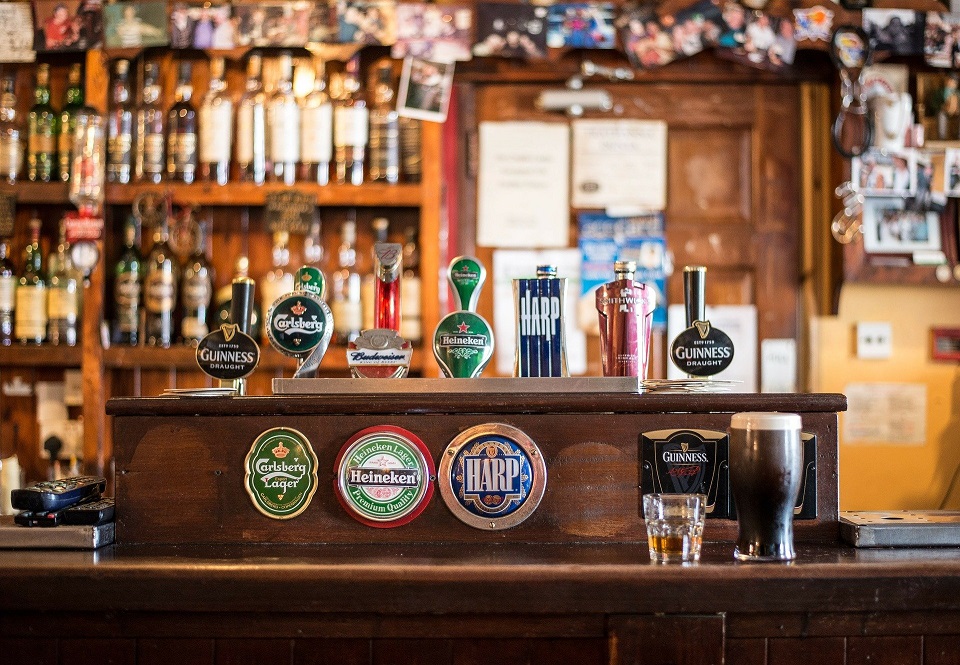
There is good news for those wishing to line-up at the local bar...
Good news
The good news is that there is a great deal of urgent academic and scientific work being undertaken at present to try and produce extensively informed research material from which governments, health organisations and other bodies from arts organisations to individual players can base their future performance decision making.
It is well funded, stringently administered and peer reviewed. It also takes time – sometimes many months to reach conclusions that can then be implemented.
Bad news
The bad news is that there is also a great deal of well meaning, but ill-informed, misled and misleading investigations and research being under taken too.
These are invariably not well funded, not stringently administered and not peer reviewed (although some recent ones from professional players are entertaining and informative). They don’t take time and tend to be accompanied by unsubstantiated or only partially substantiated claims and health and safety benefits.
Some may also come with the opportunity to buy the product that arises from their ‘findings’…
These are invariably not well funded, not stringently administered and not peer reviewed. They don’t take time and tend to be accompanied by unsubstantiated or only partially substantiated claims and health and safety benefits.
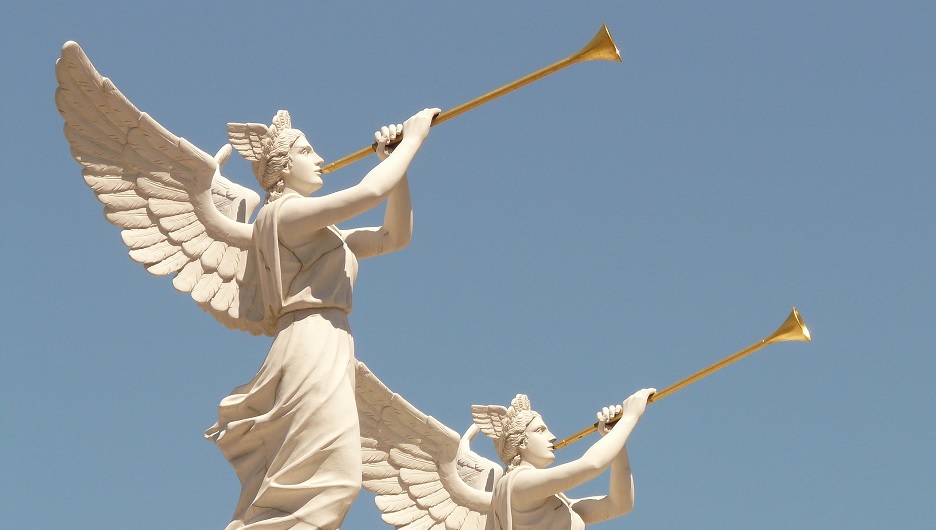
Science not divinity gives the sound answers...
Well meaning
Well meaning initiatives - from guidelines on socially distanced outdoor/indoor ensembles group performances to videos that explain the physics of sound production, the use and possible benefits of instrument bell-covers, good cleaning practices, aerosol production and air flow etc should however be treated with some degree of caution.
Playing safely in socially distanced groups may well appear a great idea, but how do the players get to the venue or bandhall in the first place and what do they do before and after they play?
The problem to really overcome with COVID-19 lies with people not products.
Meanwhile, bell covers for instruments to help capture expelled droplets or be a barrier to germs sound great (or don’t if they alter the sound of the instrument), but what actual benefit are they if a player still has to expel water through waterkeys or has a poor embouchure or breath control?
The problem to really overcome with COVID-19 lies with people not products.
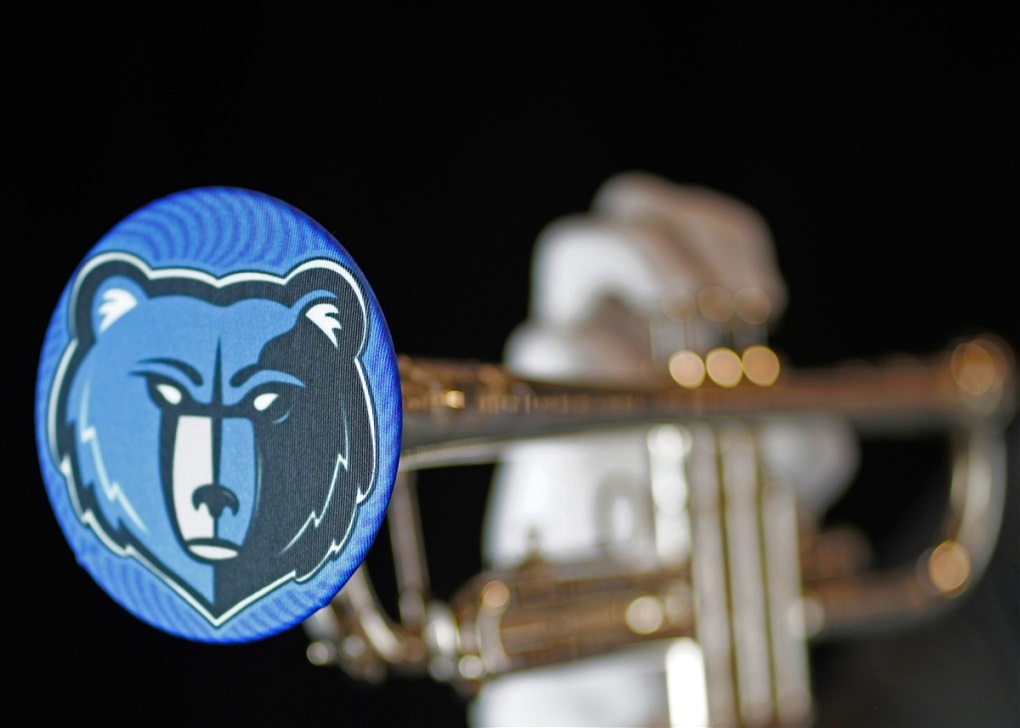
Covers can look great but need to be tested...
Claims
As for claims of any product's scientific, health and medical benefits – then check the small print, especially before you are offered any to buy.
As much as the sales patter may claim things, unless it’s backed up by official scientific or medical confirmation (usually given after extensive long term testing and trailing) they should be treated as nothing more than a performance placebo.
One American company with a sales by-line of ‘Hold the germs, not the sound’ and say that their covers “create a barrier for droplets and germs”, also issue the disclaimer that their products “…have not been tested by the CDC, FDA, or any laboratory to prove that they scientifically reduce or eliminate the projection of Covid-19 or any other virus.”
As much as the sales patter may claim things, unless it’s backed up by official scientific or medical confirmation (usually given after extensive long term testing and trailing) they should be treated as nothing more than a performance placebo.
The UK Government has also issued strict advice for “investigators and sponsors of ongoing clinical investigations and new applications” surrounding COVID-19.
Asking a few questions
It will be well worth asking a few questions.
And if you want to really want an authoritative answer about the question of sound production in air through an instrument ask a physicist.
One we did ask said it was, “…a bit more complicated than just blowing a ball across a table top.”
So how much information is out there and how much of it is worth listening too?

The research is being undertaken at the University of Denmark
Aerosol measurement
In recent days study research has been published by Lars Brandt MD PhD, Assistant Professor Centre for Performing Arts Medicine, Head of Research at the Department of Occupational and Environmental Health, Odense University Hospital and University of Southern Denmark.
His team looked at the measurement of aerosol from brass and woodwind instruments playing for a period of 5 minutes in distances from 0.5 to 4.0 meters.
His research also looked at work undertaken by the Bamberg Symphony Orchestra, a study by an occupational hygienist and experiments undertaken by the Vienna Philharmonic Orchestra and the Institute of Aerodynamics of the University of the Bendeswher in Munich.
His experiments used players on trumpet, tuba, French horn and trombone as well as oboe, fagot, clarinet and flute.
His research has also found backing from high profile musical personalities such as Sir Simon Rattle, who recently urged the UK government to “avoid superstition” and “to take note of the very thorough investigations from all over the world”.
Conclusion
The conclusion of his study research, although not exhaustive was as follows:
“The emission of aerosol measured from brass and wood wind instruments was very low, and almost at the same level as background concentrations.
Other experiments have shown very little airflow and very small aerosol concentrations at short distances from brass and woodwind instruments.
Based on the actual measurements and the other studies mentioned 1 meter distance playing brass and woodwind instruments seems to be safe with respect to the risk of spreading aerosol from the instruments.
This assumes that musician blow towards the back of fellow musicians.”
His research has also found backing from high profile musical personalities such as Sir Simon Rattle, who recently urged the UK government to “avoid superstition” and “to take note of the very thorough investigations from all over the world”.
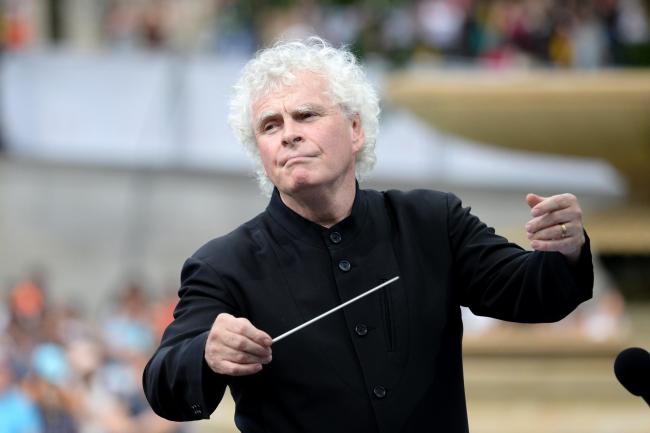
The Danish research has been backed by Sir Simon Rattle
International coalition
Meanwhile in the USA, On July 10th the National Federation of State High School Associations is to publish its first preliminary results from research that involved an international coalition of performing arts organisations to the effects of COVID-19 in performing arts classrooms and venues.
This will centre on woodwind and brass, whilst further results in relation to singing and theatre will be published on July 25th.
They state that they hope “… to determine what risk level exists or to create best practices for reducing infection risk is to understand how aerosol disbursement works in a performing arts setting.”
We will be studying this phenomenon (hopefully with funding) in our aerosol laboratory at the University of Colorado Boulder and with this data, will be able to provide better evidence-based guidance
The scientific study has been led by Dr. Shelly Miller at the University of Colorado, who stated: “Aerosol generating activities have the potential to transmit COVID as the research shows, but we have very little data on what kinds of generation happen when playing instruments.
We will be studying this phenomenon (hopefully with funding) in our aerosol laboratory at the University of Colorado Boulder and with this data, will be able to provide better evidence-based guidance.”
This is the type of research that will provide us with the evidence to strengthen any argument to be made for a considered, properly risk assessed return to the classroom, rehearsal space, bandhall and concert stage.
Patience
It is also however the type of research that may well mean a further stretching of patience and a rise in the levels of frustration before we can fully argue our case to those in authority that it is safe to return to rehearsals, tuition and performance.
We all want to get back to playing, rehearsing and performing, but beware the quick fixes, miracles cures and pseudo science that promises that we can do it fast and on the cheap.
P.T. Barnum may have said that there was one sucker born every minute, but we should make sure we are well informed enough to ensure the brass band movement isn’t one of them.
Iwan Fox













